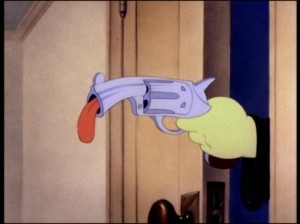From Cineaste, Fall 1995. — J.R.

The Films of Vincente Minnelli
by James Naremore. Cambridge University Press, 1993. 202 pp, illus., Hardcover: $65.00. Paperback: $27.99.


The critical position of James Naremore is Frankfurt school auteurism, a seeming contradiction. That is, he shares the Marxist orientation of many Frankfurt school intellectuals but not their disdain for the artifacts of mass culture. (To be sure, not all Frankfurt school members can be characterized in quite so monolithic a fashion; see, for instance, the prewar journalism of Siegfried Kracauer published this year in The Mass Ornament.) As a consequence, Naremore’s work shows an interest in style and pleasure that runs against the puritanical grain of most American Marxists, without ever losing sight of the social and political issues avoided by most American auteurists.
This is an idiosyncratic and progressive book in a series, the Cambridge Film Classics, that has mainly been conformist and conservative, especially in relationship to non-American filmmakers. Its volumes always focus on a few “representative” features rather than complete oeuvres, and Naremore’s study of Minnelli focuses on Cabin in the Sky, Meet Me in St. Louis, Father of the Bride, The Bad and the Beautiful, and Lust for Life, but only after an Introduction and first chapter that take up a quarter of the book and lay a considerable amount of contextual groundwork. Read more
From The Soho News (June 11, 1980). I’m sorry I haven’t had better luck in finding illustrations for the experimental and independent animated shorts reviewed here. But at least if you hit the first illustration, you can see it move. — J.R.


New American Animation
Film Forum, June 12-15 and l9-22
Cartoonal Knowledge
Thalia, Mondays (June through August)
Did you ever step out of a movie theater in the good old days and exclaim, “Gee, that cartoon was better than the feature”? Whether you did or not, there’s precious little chance of such a thing happening today. Thanks to some of the packaging principles that currently dominate media, short animation is often treated like a ghetto art — quarantined in its own little category and asked to stay there, mind its manners and keep a low profile, in such out-of-the-way corners as kiddie matinees and museums.
Consequently, to write about the New American Animation series at Film Forum — the last program for the season — is a bit like having to write about the Third World (another Film Forum specialty), rather than, say, simply Brazil or Algeria. And Greg Ford’s massive “Cartoonal Knowledge” series at the Thalia – encompassing 13 Mondays this summer, and billed as “probably the largest and most comprehensive cartoon festival ever mounted in a straight ‘theatrical’ context” — etches out an umbrella subject that is equally daunting to nonspecialists. Read more
From The Soho News, May 21, 1980. — J.R.

The Empire Strikes Back
Story by George Lucas
Screenplay by Leigh Brackett and Lawrence Kasdan
Directed by Irwin Kershner

Let’s face facts. Whether you or I love, hate or feel indifferent to The Empire Strikes Back — or any of the seven sequels and “prequels” to Star Wars slated to interfere with our lives over the next two decades — doesn’t make the slightest bit of difference in the long run, on the cosmic scale of things. Nor does it matter all that much in the mundane short run, either. Even if you stay away from the movie, manage to shun the novel and T-shirt and comic, avoid the soundtrack album and toys and video cassette, you can bet that a skilled team of disinterested humanitarians and technocrats, working round the clock with computers has decided that it’s so good for you and your kids that there’s no way you can prevent it from being crammed down your throats, in one form or another.
You’d better grin and bear it, if you know what’s good for you. The celestial machinery that has already turned Star Wars into the biggest grosser to date (“of all time” might seem a little excessive in forestalling the future) isn’t taking any chances in its investment by branching our or experimenting much. Read more







